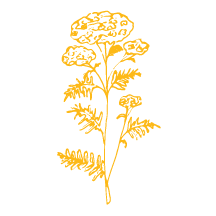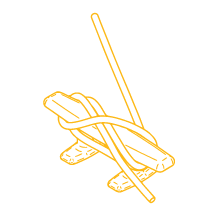It’s quiet.
Dylan is neither splashy nor showy. Rather, he comes off as entirely plainspoken, not a turbulent moment in his manner. His unaffected manner and languid delivery makes it easy to miss the immensity of the insight his tale offers. It’s quiet.
Under normal circumstances, Dylan works at the Harbor Peer and Wellness Center, now closed by COVID-19. As a person in long-term recovery himself, he is making adjustments to his daily rhythm. “I’m just trying to stay home as much as possible,” he says. “I’m pretty much by myself a lot of the time.”
“A lot of people in recovery are habitual isolators, so it’s been hard in that regard.”
Dylan has begun a daily practice of meditation.
“It really gets my head in the right spot. I tend to hold onto things when they come, and you hold on to too much stuff and you are mentally constipated.”
Meditation is helping.
“A lot of us are accustomed to looking for fulfillment from something outside ourselves. That could be substance use, it could be relationships, it could be shopping or eating. So many different things we look to fill in the spaces in our life because we’re not comfortable with sitting with ourselves. I think meditation is a good discipline to have because it forces us to sit with ourselves for a little while.”
Meditation balanced with fellowship, for Dylan has also been attending online meetings, discovering unexpected upsides. “You get to see people all over the world experiencing the same thing at the same time. You see people from Ireland or Tel Aviv or Seattle, and it’s kind of the same all over. It kind of feels like geographical boundaries are dissolving. Nothing compares to in-person contact, but we’re humans and we adapt. I’ve been dealing a lot better with the isolation than I would have thought.”
Dylan is doing well, coping with his solitude by sitting with it through meditation, and through a well-established—albeit altered—practice of fellowship (addiction is considered a disease of isolation; fellowship its antidote).
Dylan is doing well, and yet he holds concerns for others, both within and without what might be called the recovery, or peer, community.
“I’m worried about people in general: I don’t think isolation is good for anybody. People in recovery have these meetings at least; we have these resources available, and a lot of people who aren’t a part of that community don’t. It’s easy to get squirrely when you don’t have anyone to talk to.”
There it is: the quiet yet immense thing. It’s simple, and it’s plain. It’s fellowship.
Fellowship.
Dylan and the recovery community to which he belongs know this: fellowship is what we all need. All of us. Now.
It’s why today, amid COVID-19, you may yet find, alone and cold outside a locked church door at the time a meeting might ordinarily have been scheduled, a single soul sitting vigil, ready to receive whomever may show in urgent need, like a prayer met, offering guidance to online resources during these strange pandemic days.
That’s fellowship.
Dylan Bredeau is 30 years old and lives in Boothbay, Maine. His family goes back in the region multiple generations on both sides; he has many relatives living in the area today. On weekends, Dylan helps out with his father’s business, Riverside Taxi Company, a vital local resource for those without other means of transportation.





